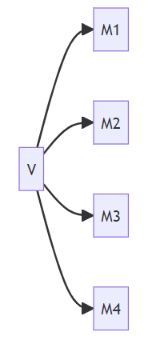C++ Compile-Time Programming -- Yongwei Wu
<img alt="ACCU" data-cke-saved-src="https://isocpp.org/files/img/logo.png" src="https://isocpp.org/files/img/logo.png" 225px;="" height:="" 60px;="" float:="" right;"="" style="float: right;">Programming at compile time has been possible in C++ for a long time. Yongwei Wu considers its past, present, and future.
C++ Compile-Time Programming
by Yongwei Wu
From the article:
Compile-time programming is a key feature of C++. It enables writing high-performance code often unattainable in other languages. This article explores its past, present, and future applications, highlighting the diverse possibilities in C++. We’ll briefly cover template metaprogramming, constexpr, variadic templates, static reflection, and more.

 When working with C++ standard containers and functions, handling references can sometimes lead to unexpected behavior, particularly with copy semantics. This is where
When working with C++ standard containers and functions, handling references can sometimes lead to unexpected behavior, particularly with copy semantics. This is where  When designing a circular doubly-linked list, the initial challenge is determining how to manage the construction of new nodes in relation to existing ones. While constructors seem like a natural fit for placing nodes before or after a given node, overloading them can lead to ambiguity and poor design choices. Instead, using distinct tag types or factory methods provides clearer intent, ensuring flexibility while respecting the constraints of guaranteed copy elision for node addresses.
When designing a circular doubly-linked list, the initial challenge is determining how to manage the construction of new nodes in relation to existing ones. While constructors seem like a natural fit for placing nodes before or after a given node, overloading them can lead to ambiguity and poor design choices. Instead, using distinct tag types or factory methods provides clearer intent, ensuring flexibility while respecting the constraints of guaranteed copy elision for node addresses. Previously, I tried to answer the question:
Previously, I tried to answer the question:  C++ On Sea took place in Folkestone again in February this year. Sandor Dargo shares an overview of his favourite talks and some emergent ideas.
C++ On Sea took place in Folkestone again in February this year. Sandor Dargo shares an overview of his favourite talks and some emergent ideas.